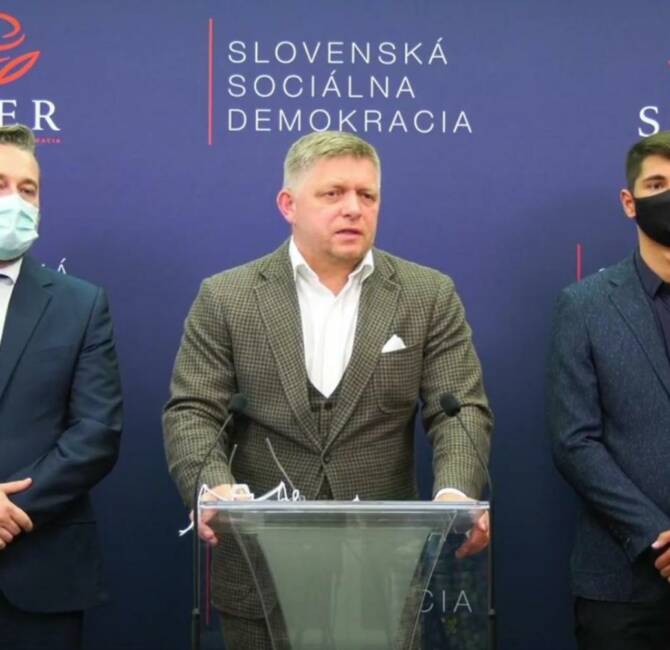A defamation lawsuit brought in Poland by an elderly woman has quickly gained international prominence. The reason is the subject to which it relates: the role of Poles in the genocide perpetrated against Jews on Polish territory occupied by Nazi Germany.
The U.S. Holocaust Museum reacted with a tweet: “The current lawsuit in Poland against two eminent Holocaust historians is one of several troubling trends in the region and beyond, such as efforts to distort Holocaust history and politicize Holocaust education.” That tweet was retweeted by the Special Envoy for Holocaust Issues at the U.S. Department of State, with her own comment: “We stand with the Holocaust Museum and others in calling for Poland and all countries to protect Holocaust research. Interference in academic discourse has a chilling effect on historical research and freedom of expression. #WeRemember”. Going even further, the Swiss newspaper Neue Zürcher Zeitung even assured its readers that Poland was reverting to “sinister communist practices,” while public radio in France called the situation “state denial.”
It feels like a return to three years ago, when an amendment to the Polish Memory Law generated strong tensions between Poland and Israel, with the latter being supported by the United States, forcing Warsaw to back down.
Today, what is stirring emotions among people who probably did not bother to study the facts before reacting is that two Polish historians have been ordered to send a signed apology to the niece of a former mayor of the village of Malinowo in Podlachia, whom they accused, in their book “Night without End: The Fate of Jews in Selected Counties of Occupied Poland,” of having turned Jews over to the Germans during the war.
While the claim for damages to an amount of 100,000 zloty (approximately €23,000) was dismissed, the Warsaw Regional Court upheld the merits of Filomena Leszczyńska’s defamation claim. The old lady still lives in the village of her late uncle Edward Malinowski, who reportedly denounced to the Germans several dozen Jews hidden in the nearby forest, and robbed a Jewish woman who had asked for his help. At least, that is what was claimed by the authors of the book, which describes Polish complicity in the Holocaust on the basis of examples collected in selected counties of Poland.
Ms. Leszczyńska was assisted in her lawsuit by the Polish League Against Defamation “Reduta Dobrego Imienia,” which, among other causes, leads the fight against the use of the term “Polish death camps” to refer to Nazi Germany’s extermination camps that were situated in wartime occupied Poland (or in territories annexed to the Third Reich in 1939, as in the case of Auschwitz-Birkenau).
The two historians under attack, Jan Grabowski and Barbara Engelking, are figures of international renown for their work on the Holocaust, a fact which contributed, in addition to the subject matter itself, to the disproportionate amount of resonance generated by this simple civil libel suit, in which the public prosecutor was not involved since it was a private complaint.
Justice Minister Zbigniew Ziobro, who is also Attorney General, did make a scathing comment after the court’s decision: “Facts were of no importance to the authors of this book, because they wrote it based on a preconceived thesis. They looked for arguments to support a thesis developed prior to writing their work. There are scientific publications that have demonstrated many other historical manipulations by Barbara Engelking and Jan Grabowski.”
This is indeed a common accusation against these authors, who are linked to the “new Polish school of Holocaust history,” although not all in Poland share that view, as the fault line roughly follows the right/left political divide.
In this specific case, the court found in favor of the complainant because her uncle had indeed been defamed. According to several witnesses, Edward Malinowski actually risked his life to protect Jews during German occupation.
In 1950, Malinowski was cleared of any suspicion of responsibility for the deaths of Jews, following a trial thanks to which several witness statements are now held in the archives of the Institute of National Memory (IPN). A Jewish survivor declared after the war: “When I hid near Malinowo, Malinowski gave me shelter, he gave me bread and bacon, for which I paid nothing, and he warned the Jews not to go around too much. The Jews killed in the forest [those whom Grabowski and Engelking accuse Malinowski of betraying] were given away by the forest rangers of Czarna and Malinowo. Czarna’s forest ranger was eliminated by the partisans. ”
Other testimonies were along the same lines, including that of the Jew who, according to the historians, was robbed by Mayor Malinowski. Estera Drogicka in fact testified after the war that Malinowski had hidden her for several weeks in his barn, stating: “and he fed me while I was penniless.” The end of the sentence “while I was penniless” was truncated in the book, where Malinowski is accused of having taken advantage of the situation to rob Estera Drogicka.
It is worth recalling here that conditions under German occupation were particularly harsh in Poland and that, in addition to the constant shortage of food, the mere fact of hiding or even just helping a Jew was punishable by summary execution of the person responsible together with the entire household, including children.
On 12 January this year, Professors Jan Grabowski and Barbara Engelking admitted before the Warsaw court that there had been an error on their part and that Engelking, the author of the passage in question, had unknowingly merged the stories of two men bearing the same name. Jan Grabowski, as editor of the book, explained that he did not have personal access to the sources because it was not his role. In addition to the written apology to the complainant, the two historians are therefore under an obligation, by virtue of the court’s decision, to correct their error in any reprint of their work.
While this error needs to be corrected if the book is reprinted, the book “Night without End” is said to contain other errors that are no less serious and defamatory, according to a number of Polish historians.
The freedom of expression and historical research defended by the U.S. State Department means that we should be able to discuss this without risking drawing the world’s wrath on the Polish government.
The inaccuracies, errors and manipulations contained in the book have been the subject of several publications in Poland (such as this book, which can be downloaded from the IPN website) where they are listed, with supporting arguments and sources. It is therefore a debate among historians that is completely unrelated to the libel suit. The court’s ruling, however, shows that the book written under the direction of Jan Grabowski deserves at least some of the criticism that has been leveled against it.




